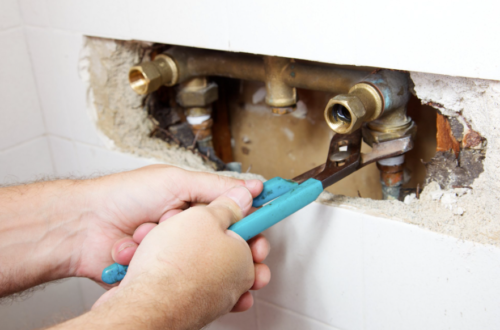Say Goodbye to Clogged Drains: Expert Tips and Tricks
Dealing with clogged drains can be a frustrating and time-consuming task. Whether it’s a slow drain or a completely blocked pipe, it can disrupt your daily routine and lead to unpleasant odors and potential water damage. Luckily, there are several expert tips and tricks that can help you say goodbye to clogged drains for good. In this article, we will explore some effective methods to keep your drains flowing smoothly.
1. Regular Maintenance
One of the best ways to prevent clogged drains is through regular maintenance. By taking a proactive approach, you can avoid the hassle of dealing with blockages. Here are a few simple yet effective maintenance tips:
- Use a drain strainer or stopper to catch hair, soap scum, and other debris before they enter your pipes.
- Flush your drains with hot water once a week to help dissolve any buildup.
- Avoid pouring grease, oil, or coffee grounds down the drain, as they can solidify and cause blockages.
By incorporating these habits into your routine, you can significantly reduce the chances of experiencing clogged drains.
2. Natural Remedies
If you’re dealing with a mild clog or want to prevent future blockages, natural remedies can be a great solution. Not only are they environmentally friendly, but they are also gentle on your pipes. Here are a few natural remedies to try:
- Mix equal parts baking soda and vinegar, pour it down the drain, and let it sit for about 30 minutes. Follow it up with hot water to flush away the loosened debris.
- Use a mixture of salt and hot water to dissolve grease buildup. Pour the solution down the drain and let it sit for a few minutes before rinsing with hot water.
- For a fresh-smelling drain, pour a cup of baking soda followed by a cup of lemon juice down the drain. Let it fizz for a few minutes, then rinse with hot water.
These natural remedies can be effective in breaking down minor clogs and preventing future ones. However, for more stubborn blockages, you may need to try other methods.
3. Mechanical Tools
When natural remedies don’t do the trick, it’s time to bring in the mechanical tools. These tools are designed to physically remove the clogs, providing a more powerful solution. Here are a few commonly used mechanical tools:
- A plunger is a versatile tool that can be used for both sink and toilet clogs. Ensure a tight seal around the drain and plunge vigorously to dislodge the obstruction.
- A drain snake, also known as a plumber’s snake or an auger, can reach deeper into the pipes to break up and remove stubborn clogs.
- For more severe clogs, a hydro jetting machine can be used to blast away debris with high-pressure water.
It’s important to use these mechanical tools with caution to avoid causing damage to your pipes. If you’re unsure or uncomfortable using them, it’s best to seek professional help.
4. Hiring a Professional
In some cases, clogged drains may require the expertise of a professional plumber. If you’ve tried the above methods without success or if you’re dealing with a recurring clog, it’s time to call in the experts. Professional plumbers have the knowledge, experience, and specialized equipment to identify and resolve complex drainage issues.
When hiring a professional, make sure to choose a reputable and licensed plumber. Ask for recommendations from friends or family, read online reviews, and request a quote before proceeding with the service. Remember, investing in professional assistance can save you time, money, and further damage to your plumbing system.
FAQs
Q: How can I prevent clogged drains?
A: Regular maintenance is key to preventing clogged drains. Use drain strainers or stoppers, flush your drains with hot water weekly, and avoid pouring grease or coffee grounds down the drain.
Q: Are natural remedies effective for clearing clogs?
A: Natural remedies can be effective for minor clogs and as a preventive measure. Baking soda and vinegar, salt and hot water, and baking soda with lemon juice are popular natural remedies.
Q: When should I call a professional plumber?
A: If you’ve tried various methods without success or if you’re dealing with recurring clogs, it’s best to call a professional plumber. They have the expertise and equipment to handle complex drainage issues.
For more information on maintaining a clog-free plumbing system, check out this helpful article on expert tips and tricks for saying goodbye to clogged drains.






